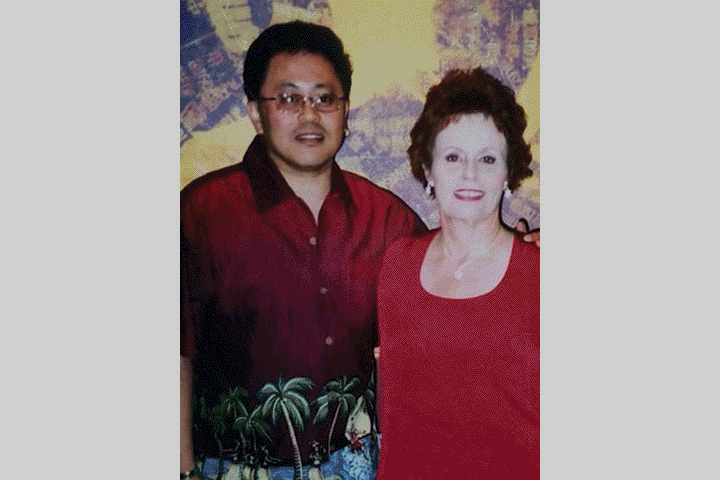Phase II/III Clinical Trial Recruiting Advanced Pancreatic Cancer Patients

Cytokines, which are a type of protein, play important roles in inflammation and infection.
They are signaling molecules that aid communication between cells, particularly in the immune system. The transforming growth factor-beta (TGF-β) cytokine plays a role in cell growth, differentiation, and immune regulation. But it also plays a dual (and conflicting) role in cancer. In the early stages of the disease, it acts as a tumor suppressor, inhibiting cell growth and promoting a type of cell death called apoptosis. But in cancer’s later stages, it acts as a tumor promoter, helping cancer to metastasize and progress.
A new study called STOP-PC aims to fight TGF-β in advanced pancreatic cancer with the help of a novel investigational immunotherapy agent called OT-101. The new drug will be given along with standard chemotherapy. The goal: reduce levels of TGF-β in malignant tumors and delay disease progression.
“Our treatment options are quite limited for pancreatic cancer patients with advanced disease, so our patients desperately need more treatments and improved treatments that can extend longer-term survival,” says gastrointestinal medical oncologist Shalini Makawita, M.D., M.Sc., an institutional principal investigator on the STOP-PC trial and assistant professor of medicine at the Baylor College of Medicine/Dan L Duncan Comprehensive Cancer Center in Houston, Texas. She notes that targeting TGF-β could potentially provide a much-needed boost to treatment options.
The Role of the TGF Pathway
“The TGF pathway is really important since it is bi-directional in terms of helping the immune system to block the transformation of precancerous cells into cancer. But when cancer cells are formed it induces an environment that helps cancer grow and spread,” Makawita explains. “This agent OT-101 is designed to fight the negative actions of human transforming growth factor-beta 2 (TGF-β2) to the immune system, reduce the level of TGF-β2 in malignant tumors, and thereby delay the progression of disease. And this trial will give us the necessary information on how well it works when combined with mFOLFIRINOX compared to chemotherapy alone.”
Because immunotherapy has played an important role in other cancers but has largely been ineffective in pancreatic cancer, the trial takes on added significance. “We know the immune system plays an important role in the development of cancer and some cancer types such as melanoma or lung cancer are more sensitive to immunotherapies than others,” she says. “But so far immunotherapy hasn’t had the same results in pancreatic cancer. The hope is that modulating the tumor-immune microenvironment with OT-101 in combination with chemotherapy will lead to improved anti-tumor activity and efficacy.”
About the Study
This phase IIb/phase III study will compare OT-101 plus mFOLFIRINOX versus mFOLFIRINOX alone as first-line therapy, in newly diagnosed patients with metastatic pancreatic cancer or locally advanced pancreatic cancer that cannot be surgically removed.
The trial will have two parts. In the first part, researchers will estimate the maximum tolerated dose of OT-101. After completion of this part, the dose regimen for OT-101 for the second part of the trial will be discussed with the U.S. Food and Drug Administration (FDA).
The main goal of the second part of the trial is to compare the effectiveness of the OT-101/mFOLFIRINOX combination versus mFOLFIRINOX alone in patients with metastatic pancreatic cancer. The trial will measure overall survival. The recruitment goal for this part of the study is approximately 400 participants.
The STOP-PC study is a follow-up trial building on five previous clinical trials conducted in South Korea, the U.S., and the European Union, according to Oncotelic, the sponsor of the trial. These included two phase II trials involving over 200 patients. In these studies, OT-101 demonstrated clinical benefits in pancreatic cancer, melanoma, and glioma, including documented cases of complete remission. Median survival for patients with low TGF-β2 expression was 72 months, compared to 15 months for those with high TGF-β2 levels.
When combined with irinotecan (a core component of the mFOLFIRINOX regimen), OT-101 extended median survival to over 34 months in patients with low TGF-β2 expression. Importantly, mFOLFIRINOX, currently used in the STOP-PC trial, has been shown to be safer and with effectiveness comparable to traditional FOLFIRINOX.
The trial is open to patients with advanced and unresectable or metastatic pancreatic adenocarcinoma who have not received prior treatment. Patients who have had treatment and have relapsed may also be eligible, on a case-by-case basis.
We encourage you to consult your physicians for clinical trials that may be right for you. The website ClinicalTrials.gov provides more details about this trial as well as many others. Oncotelic also has more information on its STOP-PC page. You can visit the Let’s Win Trial Finder for a list of all active pancreatic cancer clinical trials.






